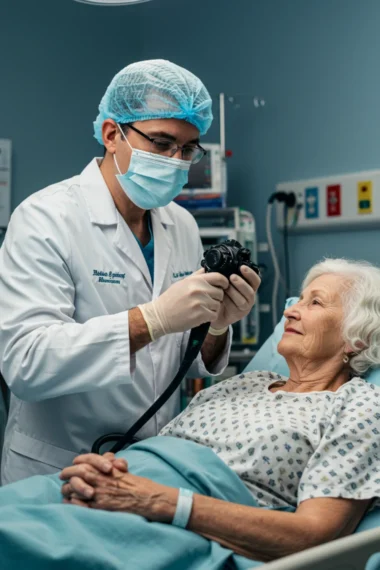UTIs in Seniors | Recovery Time, Signs, Symptoms
According to the National Institute on Aging (NIA), urinary tract infections (UTIs) are one of the most common infections in older adults, particularly women over 65.
What makes UTIs in seniors tricky is that they don’t always show the classic signs you’d expect. While younger adults often notice burning during urination or an urgent need to pee, older adults might instead become unusually tired, disoriented, or even develop sudden confusion.
That’s why spotting a UTI in seniors early—and knowing what recovery looks like—is crucial for caregivers, family members, and older adults themselves. Left untreated, a simple bladder infection can spread to the kidneys or bloodstream, becoming life-threatening.
What Is a UTI?
A urinary tract infection (UTI) happens when bacteria—most often Escherichia coli (E. coli)—enters the urinary tract and multiplies. The urinary tract includes:
- Kidneys (filter blood and produce urine)
- Ureters (carry urine from kidneys to bladder)
- Bladder (stores urine)
- Urethra (carries urine out of the body)
In most cases, UTIs begin in the bladder (cystitis) but can spread to the kidneys (pyelonephritis) if left untreated.
Why Are Seniors More at Risk for UTIs?
Older adults are more vulnerable to UTIs due to several age-related changes and health factors:
- Weakened Immune System – The body’s ability to fight infections declines with age.
- Incomplete Bladder Emptying – Seniors, especially men with enlarged prostates, may not fully empty their bladder, allowing bacteria to grow.
- Hormonal Changes in Women – Postmenopausal women produce less estrogen, which changes vaginal bacteria balance and increases UTI risk.
- Catheter Use – Seniors in hospitals or nursing homes may need catheters, which significantly raise infection risk.
- Chronic Conditions – Diabetes, kidney disease, or Parkinson’s disease make infections more common.
- Dehydration – Many seniors drink less water, which reduces urine flow and allows bacteria to linger.
Signs and Symptoms of UTIs in Seniors
UTIs in older adults don’t always look the same as in younger people. Symptoms can be divided into classic symptoms and atypical (unusual) symptoms.
Classic UTI Symptoms in Seniors:
- Burning sensation during urination
- Frequent urge to urinate
- Passing only small amounts of urine
- Cloudy or strong-smelling urine
- Blood in urine (hematuria)
- Lower abdominal pain or pressure
Atypical UTI Symptoms in Seniors (Especially Age 65+):
- Sudden confusion or delirium
- Mood changes (irritability, agitation)
- Unexplained fatigue or weakness
- Loss of appetite
- Urinary incontinence (new or worsening)
- Fever or chills (when infection spreads)
Example: A 78-year-old woman might not complain of burning during urination but could suddenly seem forgetful, disoriented, or unusually sleepy.
This is why caregivers should always consider a UTI when a senior shows sudden cognitive or behavioral changes.
Learn More: How to Insert Hearing Aids | Step-by-Step Guidance For Beginner
Recovery Time for UTIs in Seniors
How long does it take for seniors to recover from a UTI? The answer depends on several factors:
1. Uncomplicated UTIs
- Recovery time: 5 to 7 days with antibiotics.
- Most seniors start feeling better within 48 hours after beginning treatment.
2. Complicated UTIs (Kidney infection, recurrent UTIs, or related to catheters)
- Recovery time: 10 to 14 days of antibiotics.
- May require hospitalization and intravenous (IV) antibiotics.
3. Sepsis (Severe Complication)
- When the infection spreads to the bloodstream, recovery may take weeks to months.
- Seniors might need ICU care and rehabilitation afterward.
Seniors often recover slower than younger adults due to weaker immune systems and co-existing health issues.
How Are UTIs in Seniors Diagnosed?
Doctors usually confirm UTIs through:
- Urinalysis – A urine dipstick test checks for white blood cells, nitrites, and bacteria.
- Urine Culture – Identifies the specific bacteria causing infection.
- Blood Tests – In severe cases, to check if infection spread to the bloodstream.
Treatment Options for UTIs in Seniors

- Antibiotics
- First-line treatment for almost all UTIs.
- Common antibiotics: trimethoprim-sulfamethoxazole, ciprofloxacin, nitrofurantoin.
- Duration: 5 to 14 days, depending on severity.
- Hydration
- Drinking plenty of fluids helps flush bacteria out.
- Pain Relief
- Medications like acetaminophen or phenazopyridine can ease discomfort.
- Hospital Care
- For severe infections, IV antibiotics and close monitoring may be required.
How to Prevent UTIs in Seniors?
Prevention is just as important as treatment, especially for seniors prone to recurrent UTIs.
- Encourage drinking 6–8 glasses of water daily.
- Ensure regular bathroom visits (don’t hold urine for too long).
- Wipe front to back after using the toilet (for women).
- Maintain good catheter hygiene if needed.
- Avoid excessive caffeine and alcohol, which irritate the bladder.
- Cranberry supplements or probiotics (ask a doctor first).
- For postmenopausal women, topical estrogen creams may help.
Final Thought
UTIs in seniors are more than just a common infection—they can be confusing, sneaky, and even life-threatening if not treated quickly. Unlike younger people, older adults often don’t show classic symptoms, which makes early recognition essential.
- Recovery time is usually 5–7 days for simple UTIs, longer for complicated cases.
- Signs and symptoms may include confusion, fatigue, or mood changes in addition to urinary discomfort.
- Prevention through hydration, hygiene, and medical management can reduce recurrence.
Caregivers and family members should always pay close attention to sudden behavioral or mental changes in seniors—it could be a UTI knocking on the door.
FAQs
How serious can a UTI get in elderly adults?
Very serious. If untreated, a UTI can lead to kidney damage or sepsis, which can be life-threatening.
Can confusion really be the only symptom of a UTI in seniors?
Yes. Many seniors show confusion, agitation, or sudden memory issues instead of the typical burning sensation.
How long does it take for antibiotics to work for UTIs in older adults?
Most seniors feel better within 48–72 hours, but the full course (5–14 days) must be completed.
Why do UTIs keep coming back in older adults?
Frequent UTIs may be due to incomplete bladder emptying, diabetes, catheter use, or hormonal changes.
When should I take a senior to the hospital for a UTI?
Seek emergency care if they have high fever, severe pain, vomiting, confusion, or signs of sepsis (low blood pressure, rapid heart rate).










